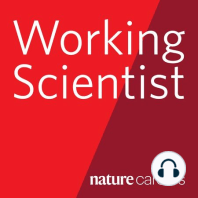14 min listen

Slack, and other technologies that are transforming lab life
Slack, and other technologies that are transforming lab life
ratings:
Length:
13 minutes
Released:
May 1, 2019
Format:
Podcast episode
Description
Ben Britton's experimental micromechanics lab at Imperial College London currently includes four postdoctoral researchers, 11 PhD students, and four Masters students.Alongside computational analysis tools used to detect how materials perform (including Matlab as the group's main programming environment, chosen for its speed, global user base and visual interaction), Britton and his team use the online collaboration and communication tool Slack. He also uses the Slack bot Howdey to check in with colleagues each week.But why Slack? "There's not enough time in the day to micro-manage every individual person," he tells Julie Gould. "Part of being in an academic environment is about developing people, trying to encourage a working environment where people are free to share ideas, to fail, and also to have very open communication. Slack doesn't replace the in-person interaction but it supplements and enhances it." Hosted on Acast. See acast.com/privacy for more information.
Released:
May 1, 2019
Format:
Podcast episode
Titles in the series (100)
With a PhD you can do anything: UK careers consultant Sarah Blackford describes how a "SWOT analysis" of your skills can identify strengths, weaknesses, opportunities and threats in your career roadmap. Sarah's sound advice might well have been followed by biotechnolog... by Working Scientist